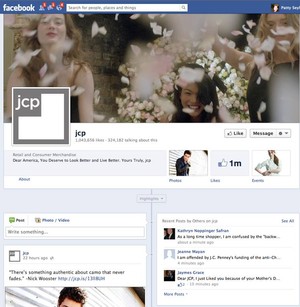What Constitutes a Customer Community?
Hint: It Isn’t a Bunch of Facebook “Likes”
We took a journey back through 15 years of research to determine what constitutes a “true” customer community, and the commonality is a shared sense of purpose and ownership and a distinctive, often well-guarded culture. The article offers tips on how to build and maintain vibrant customer communities that customers love and that provide benefits to your organization.
NETTING IT OUT
We have been talking about customer communities since 1998, when we made fostering community a critical success factor in our bestselling book, “Customers.com http://www.customers.com/books/. Prompted by a recent blog post about a “community” which is made up of customers who “like” a merchant on Facebook, we took a journey back through our discussions and research to understand what really constitutes a “true” customer community.
In this article, we look at:
- Different types of customer communities and the different players in each community
- Why customers participate in communities
- Business benefits of offering/supporting customer communities
- Tips for building and maintaining customer communities
We also provide a self-assessment guide where you can evaluate how well you think you are doing in actually building, nurturing, and running a customer community.
Note that we are talking primarily about "online communities." However note that the same principles apply for person-to-person and telephone communities, as well as for the many hybrid online/offline communities, such as CABs and Fan Clubs.
PONDERING THE MEANING OF CUSTOMER COMMUNITY
The Blog Post that Prompted This Article
A few weeks ago, I came across a blog post, “J.C. Penney just lost a community of 3 Million Facebook fans. Where's the Strategy in that?” According to blogger Mark Orlan:
“Almost 3 million people are ‘fans of’/‘like’ J.C. Penney's Facebook Page. That's quite the community, wouldn't you agree? A following that takes years to build, yet can take less than a day to destroy. Here's the message they posted this past Friday on their Facebook wall: New Facebook page everyone! Time to rebuild. Time to wipe the slate clean. New name ‘jcp’, new gray logo, and best of all... ‘We did it for you’!”
I was somewhat taken aback by the concept of Facebook fans being described as a “customer community.” And my feeling was confirmed when I forwarded the post to Matthew Lees, our former writer/consultant on social media and customer communities, who is now Senior Principal Product Manager at Oracle and the product manager for Oracle’s Support and Innovation Community platform. Matthew’s comment: “I don't know that I'd categorize 3 million Facebook ‘Likes’ as a ‘community.’”
If liking something on Facebook constitutes being a member of a community, then I have joined a number of communities unknowingly. Other than liking pictures of my friend’s kids, vacations, and theatrical endeavors, I have chosen to “like” certain merchants on Facebook. But I only did it to get some sort of benefit, such as a free coupon or access to merchandise and services only available to Facebook “fans.” There merchants lured me into liking them as a marketing ploy; I didn’t necessarily feel increased loyalty to them, nor do I ever think of going to Facebook to interact with other “likers.” I would never consider myself part of these companies’ communities. (See Illustration 1.)
jcp's Facebook “Community”
© 2013 jcp and Facebook
1. Note the last post by “others” on jcp. Rather than joining a community, Jaymes Grace “liked” jcp simply because there was a Mother’s Day marketing offering to be gained. Joining a Customer Community Should Be a Conscious Decision
Becoming a part of a customer community should be a conscious choice, not an accident. Admittedly, you might not think about the fact that you are “joining a community” when you are, say, looking for answers to a question from other customers or for new ideas about how to use a product or service. But you have explicitly gone in search of input from other customers or from company subject matter experts. You know you have signed up in order to get access to that interaction.
A Customer Community Is More Than a Group
There’s also something about a community that makes it more than just a group. “Group” is a general term that can encompass a great many types of collections, gatherings, and organizations, while “community” conveys something more…a shared sense of purpose and ownership and a distinctive, often well-guarded culture. I’m not saying that customer communities are as tight-knit as most longstanding real-world communities (neighborhoods, religious communities, and so on), but in a true customer community, members do tend to care, sometimes quite passionately, about the community and each other.
FIFTEEN YEARS OF LOOKING AT CUSTOMER COMMUNITIES
Fostering Community: a Critical Success Factor Since 1998
So what does constitute a customer community? I went back through our years of writing about customer communities, beginning with our bestselling 1998 book, “Customers.com,” where Foster Community was one of our eight critical success factors (the chapter was updated in 2007 by the aforementioned community expert Matthew Lees). Long before online customer communities were de rigueur, we recognized the strategic importance of community in creating ongoing customer relationships. We specified the important factors required to foster a community:
- Entice customers into the fold.
- Introduce customers to others with common interests.
- Introduce and reinforce common terminology and values.
- Let customers “strut their stuff.”
- Encourage customers to become part of the “in crowd.”
- Promote the interests of the community.
- Show customers that your company is invested in the community, too.
What’s most significant about these factors is that they are all about the customer, not your organization. Building customer communities (online and/or offline) isn’t about marketing to customers. Community should be about…
Sign in to download the full article
0 comments
Be the first one to comment.




